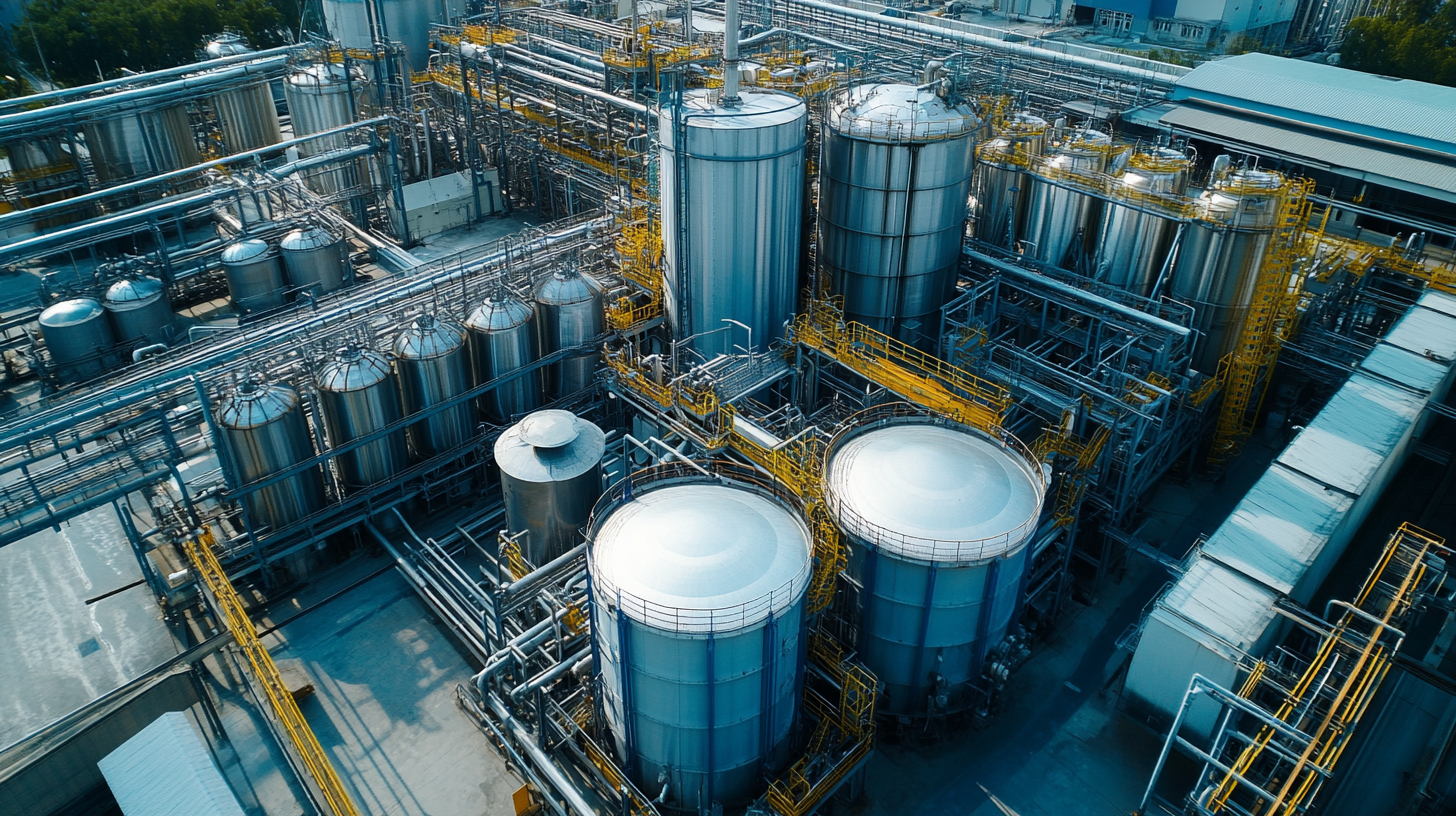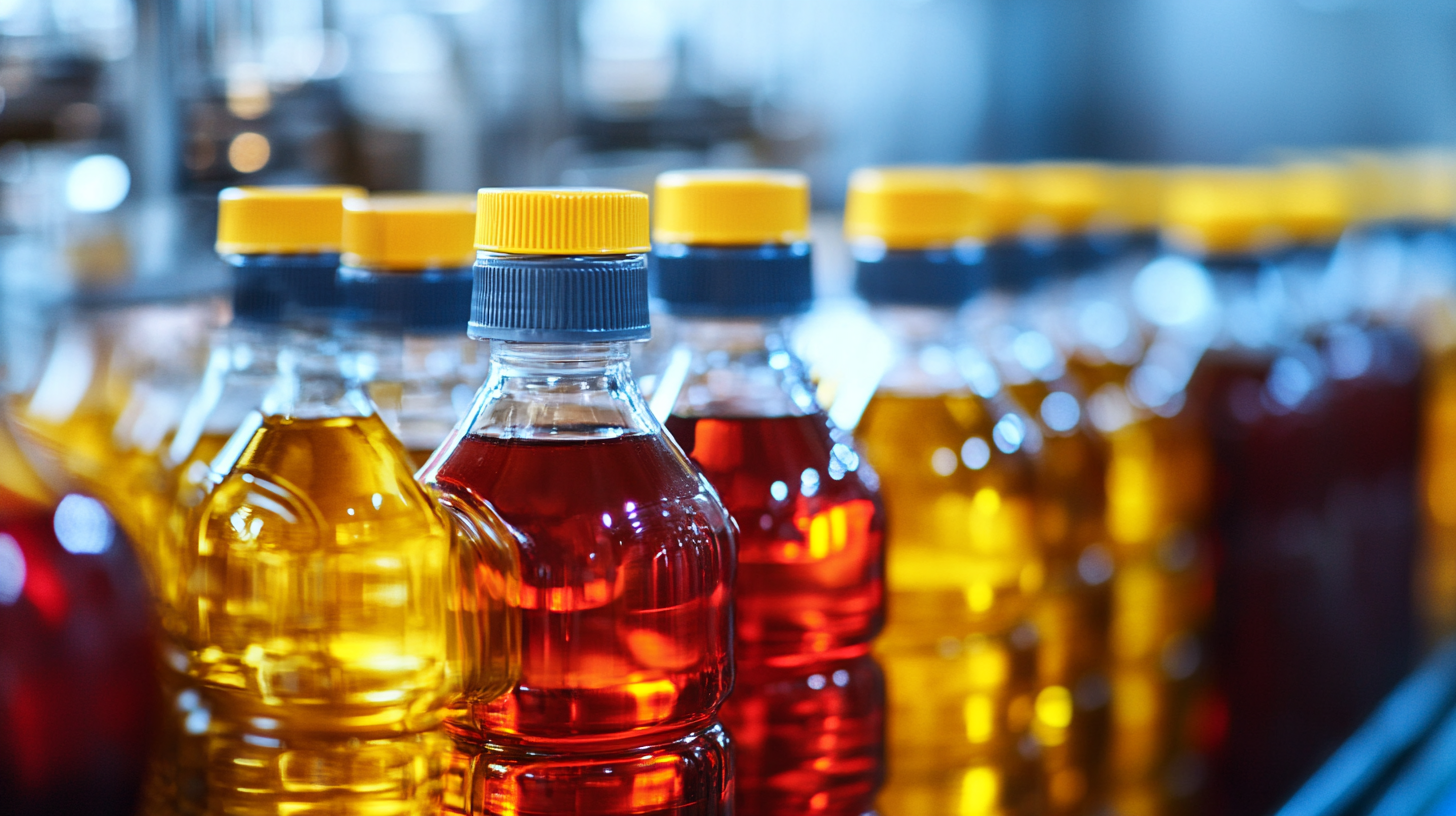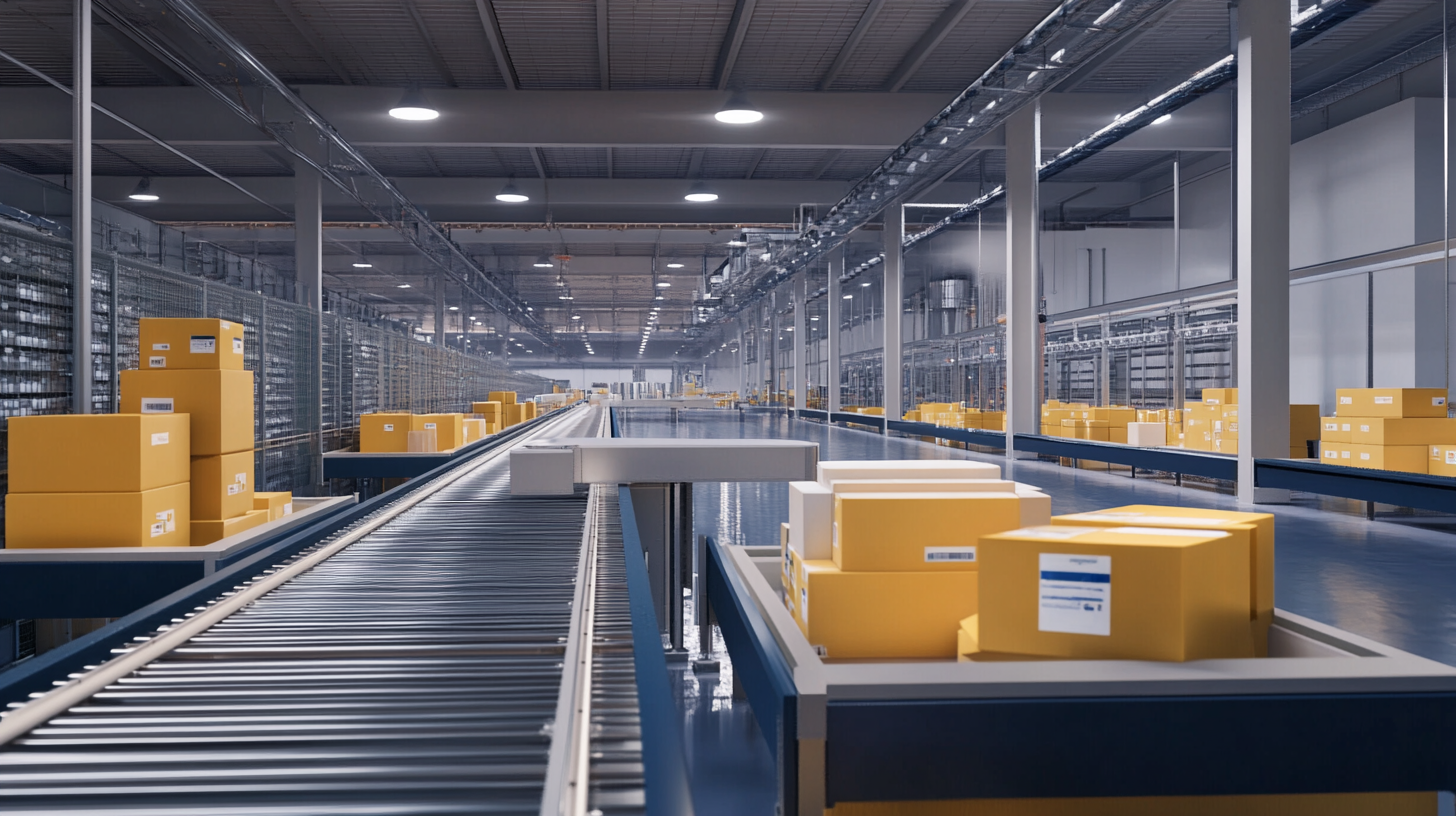In the past few years, the global demand for Automatic Filling Machines has jumped tremendously, influenced by a massive growth of industries such as food and beverage, pharmaceuticals, and cosmetics. According to MarketsandMarkets, the automatic filling machine market is expected to grow from USD 5.7 billion in 2020 to USD 8.9 billion by 2025, representing a compound annual growth rate (CAGR) of 9.0%. It requires understanding compliance for exporting and importing machines. Without a doubt, manufacturers desire to maximize productivity as well as efficiency through more automation, navigating the red tape around entry to successful international markets.
To understand the international expectations in the context of Automatic Filling Machines, one should enter into the technical specifications, but perhaps even more critical is the individual understanding of international standards and regulations related to safety, quality, and environmental effects. Their operations are guided toward global best practices by organizations like the International Organization for Standardization (ISO) and the Food and Drug Administration (FDA). Companies must be knowledgeable about this evolving compliance landscape to mitigate risks associated with the growing scrutiny of an ever-increasing regulation and take advantage of the many lucrative prospects that exist around the world.
The entire world's demand for automatic filling machines is exponentially increasing as of the last few years, specifically due to the fast-increasing expansion of the food and beverage, pharmaceutical, cosmetic, and related industries. An automatic filling machine market forecaster claims that the automatic filling machine market would amount to growing from an estimated USD 5.7 billion in the year 2020 to around USD 8.9 billion by 2025 at a compound annual growth rate (CAGR) of 9.0%. Consider that there arises a demand for an understanding of the compliance involved in exporting and importing these machines from different regions. Every one of the manufacturers wants to enhance productivity and efficiency by means of automation, while taking care not to leave behind the red tape around entry to successful markets globally.
One should comprehend international expectations very specifically regarding Automatic Filling Machines, which would speak into technical specifications but perhaps most critically into the individual understanding of regulations and international standards related to safety, quality, and environmental impacts. This directed much toward the global best practices for their operations from organizations like the International Organization for Standardization (ISO) and the Food and Drug Administration (FDA). Companies must acquire the relevant information in this evolving compliance landscape to mitigate risks concerning growing scrutiny of ever-increasing regulation and take advantage of the many lucrative opportunities existing across the globe.

Understanding global compliance regulations for automatic filling machines is of utmost importance to manufacturers and exporters involved in the packaging sector. Automatic filling machines are employed throughout industries like food and beverage, pharmaceuticals, and cosmetics, with each jurisdiction having different standards and regulations from international bodies. Compliance ensures that the machines are safe and reliable, thus assuring smooth cross-border trading. Depending on which jurisdiction the machine is in, different compliance requirements are laid out for entering or leaving any territory. In the EU, for instance, the CE marking is regarded as pretty stringent, meaning the product complies with health, safety, and environmental protection standards. On the other hand, there are regulations in the U.S. valid against negligence or enforcement by organizations such as the Food and Drug Administration (FDA) or the Occupational Safety and Health Administration (OSHA) in respect of health and safety of product and worker protection. Being able to navigate these regulations would save the manufacturer big fines and uphold product quality while standing high in the market. In addition, international standards like ISO (International Organization for Standardization) also affect the compliance process. Manufacturers are encouraged to seek ISO certification for quality management systems and best practices, instilling trust in their products and boosting competitiveness in the global market. When manufacturers are compliance-oriented with global standards, there are high chances of acceptance of their automatic filling machines in international markets for their functionality, safety, and performance.

In so far as automatic filling machines are concerned, knowledge of the key international standards governing export and import is vital in order to comply and, therefore, be successful in the market. ISO and IEC are just two of the various bodies that set standards that manufacturers and exporters follow. These standards address the issues of safety, quality, and performance, thereby warranting that machines fulfill given criteria before they can be marketed internationally.
Of great relevance is ISO 9001, which deals with quality management systems, in a way that conforms to its requirements benefits manufacturers and markets by showing that the product being observed and improved meets customer and regulatory requirements. On safety and environmental specifications, other standards touch on these in a more technical way, for instance, the IEC 60204-1, which deals with the safety of electrical equipment. Also, the current and other applicable standards greatly influence the approval and certification of filling machines for their importation based on the destination country.
Moreover, diverse countries may sometimes have their own regulations that complement the international standards. The EU itself has directives, such as the Machinery Directive, and these dictate the criteria for safety and performance in machines sold in any of its member states. Thus, in order to navigate successfully through this regulatory terrain, in an instance a full understanding of international standards may not be sufficient due to the existence of the local standards. If deemed inappropriate, these laws may delay, penalize, or even totally prohibit you from selling your machinery in the target markets. Therefore, keeping oneself updated with these standards greatly protects one's business and more so gives an edge over competitors globally.

In global business, knowledge of certification and testing requirements for machines, especially automatic filling machines, is vital for ensuring proper conduct in export and import activities. Unsurprisingly, in most cases, the machinery must conform to many stringent regulations to ensure safety, efficiency, and reliability. The International Organization for Standardization (ISO) claims that 80% of the manufacturers of machinery have trouble complying with international standards for this reason: it is critical to have a profound understanding of these issues and prepare accordingly.
Different standards apply to automatic filling machines: ISO 9001, which is concerned with quality management, and ISO 14001, which addresses environmental aspects. Both of these set forth requirements for the manufacturers to implement a systematic approach to the management of quality and reduction of adverse environmental impacts. In addition to these, the European Union requires compliance with the Directive on Machinery (2006/42/EC) with regard to the fulfilment of mandatory health and safety requirements prior to marketing.
These tests, as stated in ASTM International standards, permit verification that a machine functioned within the specified parameters of safety. A recent study showed that about 67% of mechanical failures in automatic filling machines are due to malfunctioning caused by failure to meet testing standards. The regular testing of machines will improve their efficiency in operation and, at the same time, protect the companies from potential legal actions or financial losses pertaining to violations of compliance. As the industry matures, the push for compliance will compel ongoing education and investment toward newly developed testing methods and certifications.

Its importance in interfacing regional differences in compliance relates to the activities of a business involved in the export and import of automatic filling machines. Regulations vary for every country or region, each having its own laws governing such things as manufacturing standards, safety demands, and environmental regulations. Understanding such particular requirements enables prevention of costly delays and litigations to ease the entry into different markets.
For example, Europe follows strict requirements on safety and environmental-related machinery standards reflected on its directives such as the Machinery Directive and the Eco-Design Directive. Most of Southeast Asia may be less stringent, but there are still quite some specific and distinct requirements for each country. Such nuances should interest manufacturers because non-compliance would result in recalls, fines, or a prohibition for selling the product in that market.
Not to mention, the whole compliance scenario has become more complex with the advent of globalization; most manufacturers now have to deal with certification differences, with some regions not forgetting accepting certain international certifications while others insist on local ones. Thus, businesses, instead of concentrating only on understanding the law relating to their own target country's regulations, need to build alliances with local compliance consultants who can provide insight into the maze that these differences create. Prioritizing compliance even before product research and development will place the firm at the competitive edge in the international market; hence promoting growth and innovation across industries.
Automatic filling machines need to comply with international standards so that import and export transactions of any kind could take place. These standards have got their own importance concerning the current developments in geopolitics, like the freeze on the U.S. export market due to the soaring trade tussle between the U.S. and China. They serve as preservative measures from losing market access and incurring unplanned expenditure making businesses avoid shaping out these standards.
Keeping exporters up to date with trade regulations and specifications for import and export applicable to the sector they are working in goes a long way in easing the burden in meeting compliance. Practicing this best practice would not only make certain the safety and efficacy of products but also create confidence among international partners relating to internal quality assurance processes. A good event to keep up-to-date on market and regulatory development is participation in trade fairs, such as the China Import and Export Fair.
Further, training and resources for educating personnel on compliance with the requirements would require a match by companies. This would help minimize the risk of incurring internal fines, recalls of products, etc. The companies must focus on establishing good relationships with their logistics providers and customs brokers to further improve their efficiency with regard to the transactions within and outside borders and ensure compliance with established standards concerning documentation and shipping.
Headquarters
2980 Scott St, Vista, CA 92081
Phone: (760) 734-4177
Fax: (760) 734-4188
Open: 8:00 am – 4:30 pm
Texas
8051 Jetstar Dr #175 Irving, TX 75063
Phone: (972) 915-6888
Fax: (972) 915-6999
Open: 8:00 am – 4:30 pm
Florida
14231 Jetport Loop. #1 Fort Myers, FL 33913
Phone: (239) 225-4020
Fax: (239) 225-4024
Open: 8:00 am – 4:30 pm